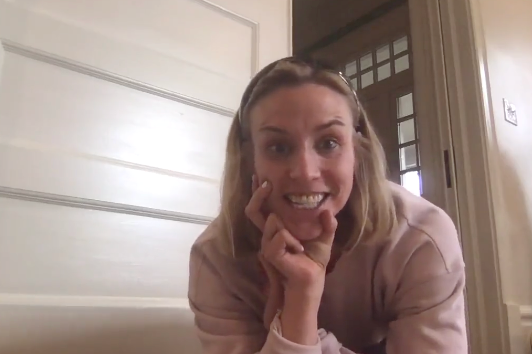A man tried to abduct me, too. So why did I blame Eliza Fletcher for running at 4am?
I’m embarrassed by how I reacted to the kindergarten teacher’s death

When I heard the news of Eliza Fletcher, the 34-year-old teacher snatched and forced into an SUV at around 4:20 am while on her daily run, my reaction, after the initial horror, was, “Why was she running so early in the morning?” The mother-of-two was abducted while running near the University of Memphis campus. The blame I put on her was the same I put on myself when, aged 16, I was attacked and almost abducted by a stranger, too.
Growing up, my mother thought I was not thin enough, not lady-like enough, not obedient enough. So, after my second year of high school, and after various attempts at failed diets, she sent me off to a “wellness center” — a.k.a fat camp — in Spain. One morning, after a number of lonely days and mandatory exercise classes, I took the bus into downtown Marbella. I walked along the seaside in my recently purchased sundress, happy to have an adventure away from the rigors of the camp.
I didn’t notice the stocky man approaching. His sudden closeness startled me. He had jet-black hair, thick stubble, and looked to be in his 50s; he was wearing dirty work trousers and an old shirt with the top three buttons undone. He said something in Spanish. I didn’t speak the local language so I said the only phrase I’d learned: “Yo no hablo español.” I smiled as I said it, trying to be polite.
That annoyed him. He spit more words at me I didn’t understand. I panicked and tried to weave past him but he grabbed my left wrist and yanked me towards him. I pulled away. He used both hands to hold onto my arm and started pulling me down the street towards a set of parked cars. I cried for help. A few people walked by, looking at the commotion but quickly turning away. He said something to the passers-by. They didn’t want any part of this.
I tried to free myself, positioning my feet firmly on the steel-gray concrete, angling myself away from him. He was stronger and kept pulling me forcefully towards the cars.
Something erupted inside me. I screamed. Reaching back with my free hand, I swung my fist as hard as I could into his body. I did it again and again. It hurt more than I anticipated. Like hitting a wall. Stunned and angry, he winced with pain. Then he let go and ran down the street. I stood, shaking and out of breath, afraid I was going to throw up. Walking in the unforgiving hot sun, my wobbly, weak legs somehow got me to the bus stop.
The receptionist at the camp noticed my red eyes and disheveled look. I didn’t want to talk about it. I wasn’t about to disclose my terror to her or anyone else. What if they thought it was my fault? I went into a city I didn’t know, in a country where I didn’t speak the language, wearing a too-flimsy sundress, revealing too much of my body.
Maybe my mother was right and I wasn’t lady-like or modest. I deserved this. So what if it was a stifling summer day? I should have been more careful, more conservative.
I lost 20 pounds those two weeks. My mother was thrilled. Meanwhile, I didn’t tell anyone about the attack. I went over it a million times in my head, going between anger at my attacker and anger at myself.
My feelings of blame are not unusual. Blaming the victim, even if the victim is you, is a human instinct rooted in our psychology. It stems from a human tendency called the just-world phenomenon, in which we tend to believe the world is fair and just so if something bad happens, it must be because the victim did something wrong or somehow deserved it.
A 2019 study in the Psychology of Women Quarterly found that when asked, people — both men and women — tended to have more empathy for the male perpetrator than female victims of sexual harassment. Unfortunately, this instinct is still ingrained in society.
But we can change such patterns of thinking by increasing the education of men and women about victim-blaming and sexual assault. One example of a successful campaign that reduced sexual assault and highlighted the error of victim-blaming is an ad that ran in Vancouver, Canada. The ad consisted of an image of a woman passed out with alcohol around her with a quote: “Just because she isn’t saying no doesn’t mean she is saying yes.” Within six months of the ad going up, there was a 10 percent decrease in sexual assaults.
My reaction to Eliza Fletcher’s tragic abduction and murder surprised and embarrassed me, bringing to light the work I need to do to alter my thinking about blame, including of myself. This is the same work some in our country also need to do to change their victim-blaming reactions, which exasperate the problems surrounding sexual violence against women and harm our society as a whole.
Women have the right to wear a sundress without the worry of being attacked or to go on a morning run without the fear of being abducted and murdered. Killers are to blame for killing, not their victims. Eliza Fletcher was an innocent victim of a monster and putting any blame on her is a distraction from the horror of what happened to an innocent kindergarten teacher and mother-of-two who had every right to exercise in her community that morning.
Bookmark popover
Removed from bookmarks